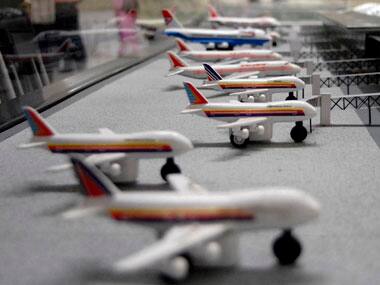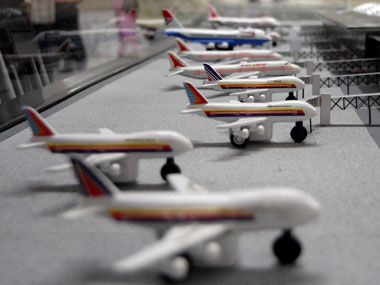After Delhi and Mumbai, the cost of air travel from Chennai and Kolkata as well as 10 other airports is likely to rise if a proposed plan to increase airport charges is approved, a report in Business Line has said.
The Airports Authority of India (AAI) has asked for an increase in airport charges (including a user development fee) for the two metro airports, while a user development fee is planned for 10 other airports, the report said. “The AAI is seeking a 50 percent hike in airport charges for Chennai, while for Kolkata, the quantum is 160 percent,” it said quoting a person familiar with the development.
Airport charges refers to the money paid to the airport developer by airlines for landing, parking and other facilities, along with the money passengers pay for using airport facilities.
[caption id=“attachment_294234” align=“alignleft” width=“380” caption=“The Airports Authority of India (AAI) has asked for an increase in airport charges (including a user development fee) for the two metro airports.”]
 [/caption]
[/caption]
If approved, Kolkata and Chennai airports will be following in the footsteps of their counterparts in Delhi and Mumbai.
From 1 May, passengers flying out of Mumbai International Airport will be paying more after the Directorate General of Civil Aviation allowed the airport to levy a development fee of Rs 100 on every passenger on domestic flights and Rs 600 on every passenger on international flights.The development fee, which carriers will collect and subsequently deposit with Mumbai International Airport, is applicable for 23 months, oruntil March 2014.
The big shocker, however, came last month when New Delhi airport raised charges by a whopping 345 percent, making it the world’s most expensive, according to this Firstpost report. From 15 May, every domestic passenger using the swanky airport will have to pay Rs 196 while every international passenger will have to shell out Rs 436.
The hikes come at a bad time for the airline industry, which is already reeling under the pressure of high operating costs and faltering demand.
)